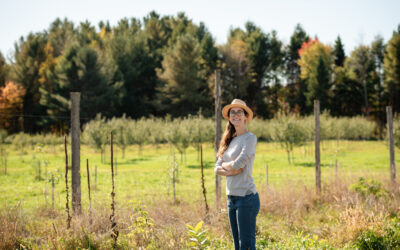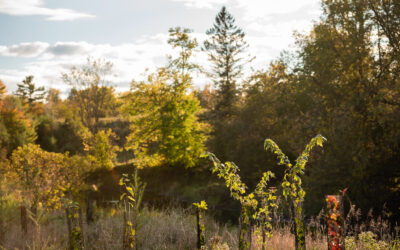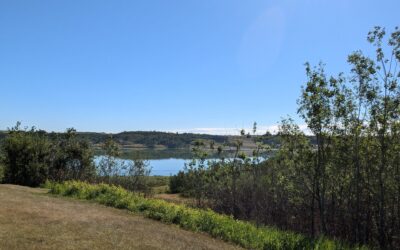In 2021, ALUS helped deliver 96 hectares of tree plantings in Ontario and Quebec, supporting the long-term biodiversity and carbon sequestration goals of the 2 Billion Trees Commitment.
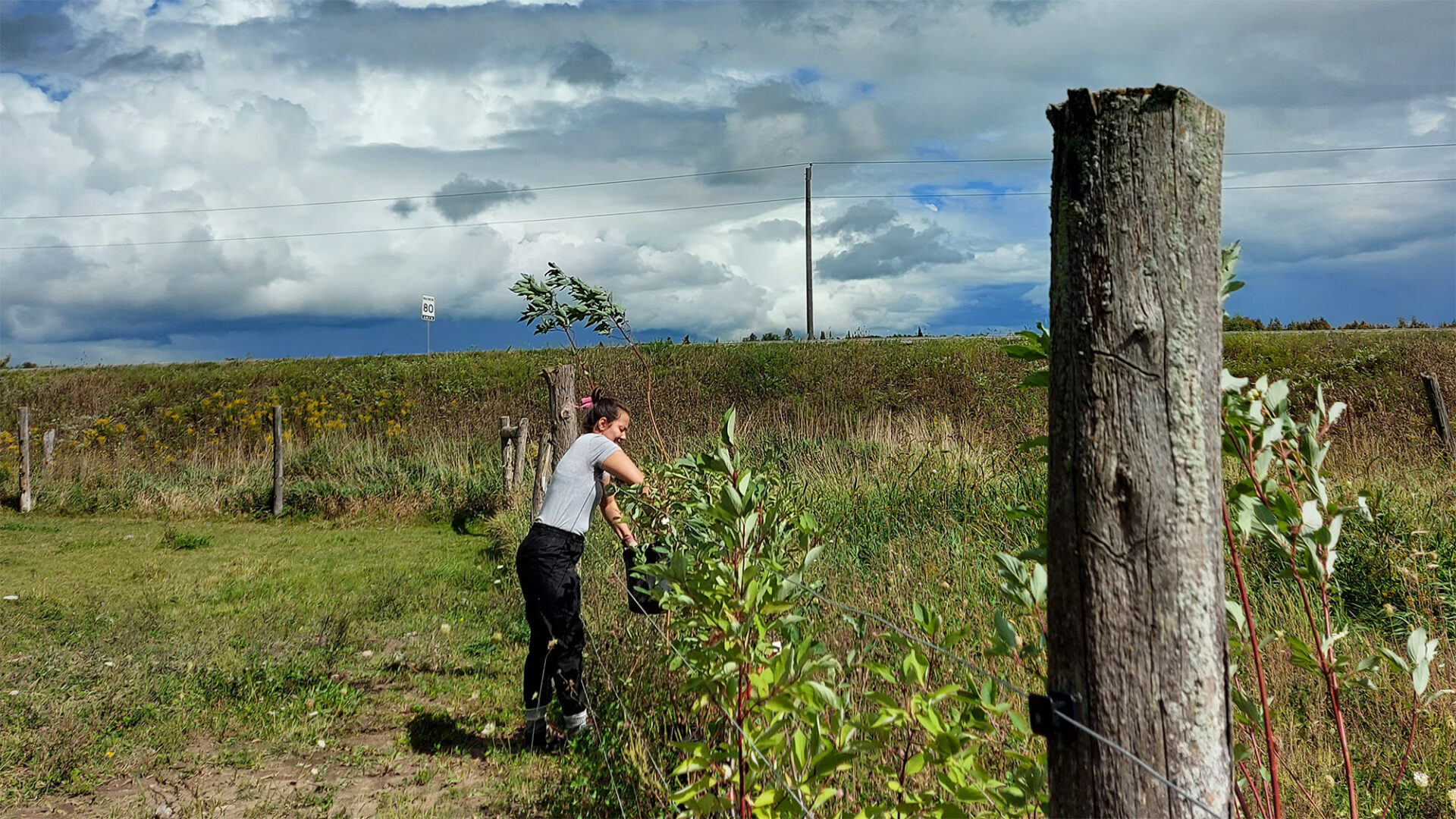
Allison Robertson, OFAH/BrokerLink Insurance Fish and Wildlife Conservation Intern, helps plant trees on an ALUS participant’s farm in Peterborough, Ontario.
Proving just how effective the ALUS model is, the organization was able to plant 97,434 trees across 96 hectares of land in the 2021 season in support of the Government of Canada’s 2 Billion Trees Commitment.
ALUS tree planting projects support carbon emissions reductions through both land use changes, which result in the reduced use of synthetic inputs and emissions from heavy machinery, and by sequestering carbon. Biodiversity is supported through the intensification of farm-level habitat and the growth of ecosystem corridors across an array of local ecosystem projects, including among the groundswell of new ALUS participants and communities joining their neighbours’ long-stranding projects.
“The Government of Canada is on track to deliver our commitment to plant 2 Billion Trees. By developing strong partnerships across the country, we are rapidly ramping up the scale of the program every season,” says the Honourable Jonathan Wilkinson, Minister of Natural Resources. “In 2021, ALUS’ achievement in planting over 97,000 trees during our first planting season contributed to our national effort to reduce greenhouse gases emissions, enhance biodiversity across Canada, and advance on the path to net zero by 2050.”
These natural infrastructure projects are made possible through long-term funding and technical expertise provided by ALUS and partner organizations that ensure communities can adopt, administer and support the up-front costs of these projects like Ontario Federation of Anglers and Hunters Peterborough, Forests Ontario, Ministère de l’Agriculture, des Pêcheries et de l’Alimentation and Organisme de bassin versant de la Yamaska.
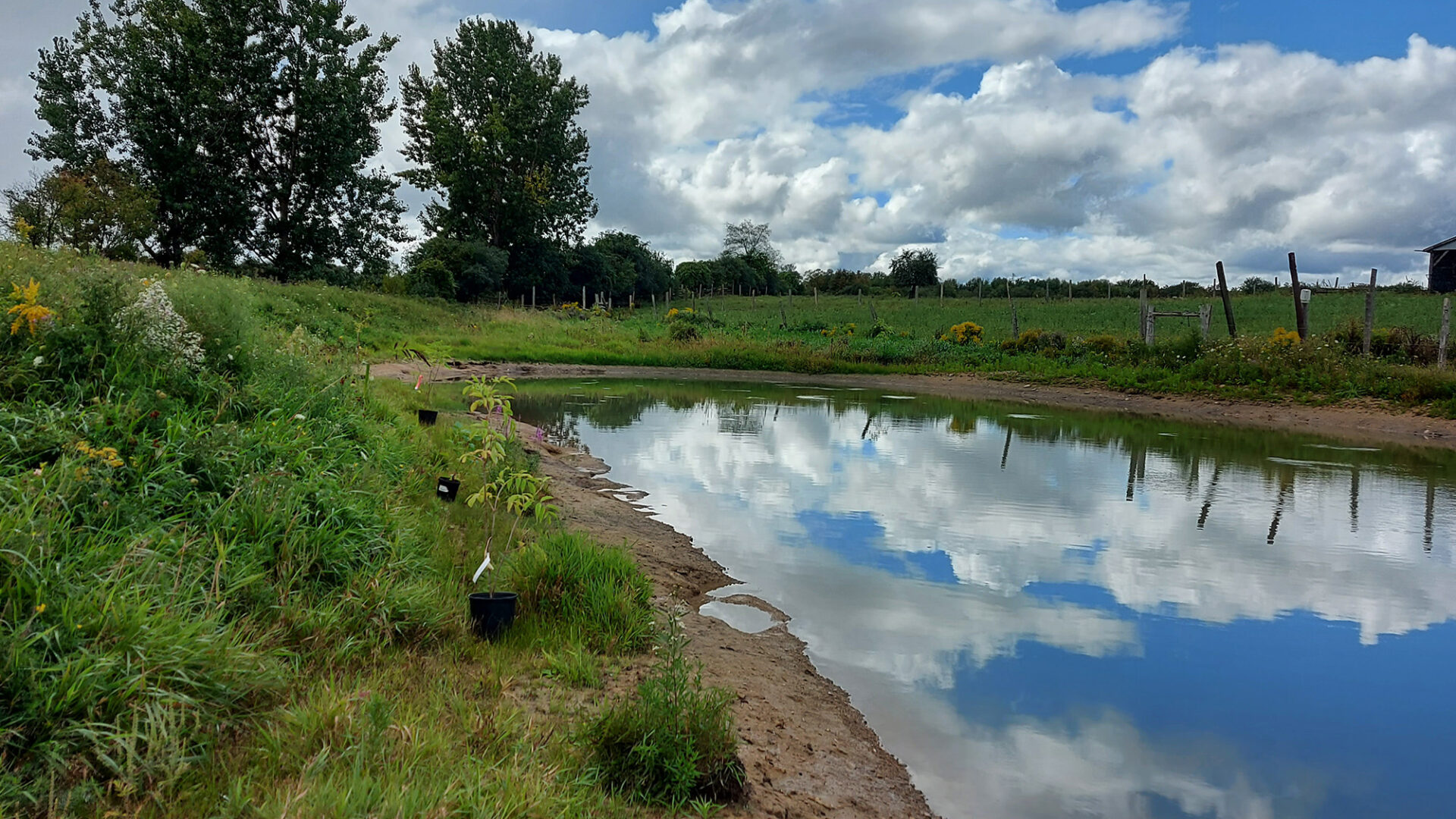
To support this newly created pond, the landowner partnered with ALUS Peterborough to add 55 trees and shrubs in a one-acre riparian zone around it. The project will stabilize the bank and provide a variety of habitat functions, including support for species-at-risk like turtles, Eastern Meadowlark and Bobolink.
“We are incredibly proud of the commitment our participating farmers and ranchers make to nourishing biodiversity,” says Alyssa Cousineau, Eastern Hub Manager, ALUS. “Our participants make it possible to fulfill ALUS’ mission to create, support and restore ecosystems across the country, while our local partner organizations ensure that participants have access to ALUS.”
ALUS participants in the communities of Norfolk, Elgin, Middlesex, Chatham-Kent, Lambton, Ontario East and Peterborough in Ontario, along with the communities of Outaouais and Montérégie in Québec, sought out natural infrastructure projects supported by ALUS to achieve these goals in 2021.
The ALUS Peterborough program facilitated four tree planting events in 2021, drawing over 100 volunteers from the community to help engaged farmers get the work done of putting trees in the ground.
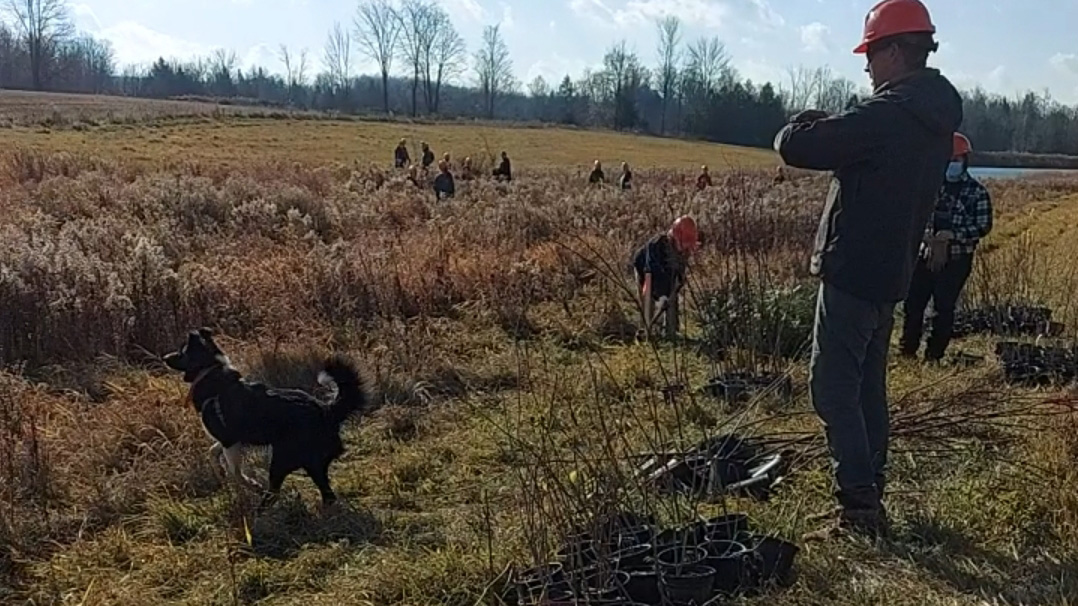
Josh Feltham, Fleming College Professor and Program Coordinator, oversees his Ecosystem Management student volunteers as they place and plant 600 trees in this farm creek’s newly restored and expanded riparian buffer.
“The volunteers who showed up to support our ALUS participants are really incredible,” says Kate Powell, Program Coordinator, ALUS Peterborough. “Many of these volunteers have jobs or are students. It’s a testament to their commitment to creating a healthier, more resilient environment that they found time to help transform their community and support their local farmers.”
The five-acre riparian buffer project captured in the image above provides critical ecological services, such as filtration of agricultural run-off, floodwater retention and support for biodiversity. The wildlife benefitting from riparian projects like this one include stream and creek-dwelling organisms, such as benthic insects and fish. Species planted for this project include Silver Maple, Yellow Birch, Spicebush, Eastern White Cedar, Elderberry, Hackberry, Meadowsweet, Swamp Rose and Buttonbush.
Species are selected that harmonize with the natural ecology, providing support directly to the riparian habitat, as well as insects, birds, rodents, reptiles and mammals that depend on a diverse and robust ecosystem to support their lifecycle.
About ALUS
ALUS (originally an acronym for Alternative Land Use Services) is a national charitable organization that provides expertise, resources, and direct financial support to 35 communities across 6 provinces where more than 1,400 farmers and ranchers establish and steward nature-based solutions on their land. Through these solutions, they deliver ecosystem services to help sustain agriculture and fight climate change and biodiversity loss for the benefit of communities and future generations. Projects such as enhanced wetlands, windbreaks, riparian buffer zones, wildlife habitats, adaptive agricultural practices and other impactful environmental solutions produce cleaner air, cleaner water, greater biodiversity, carbon sequestration, erosion control, flood and drought mitigation, pollinator and wildlife habitat, and other ecological services. Learn more at ALUS.ca.

